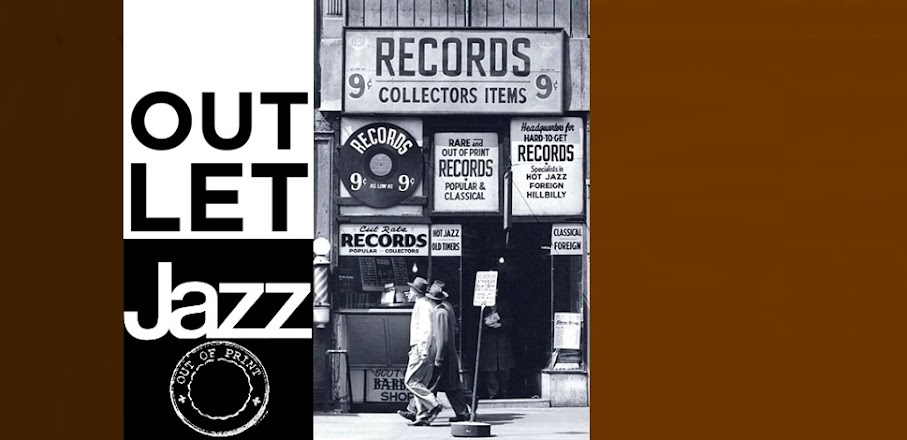The primary focus of the two albums compiled in this CD set rests on Buddy Collettes talents as a writer and as a multi-reed instrumentalist. Although the sleevenotes didnt say so, Tanganyika was Buddy Collettes album; he is the composer of most of the tunes and is featured throughout. On the second album, Mood For Max, a Max Albrights drummer date, Collette, as a player, is clearly the star of the session, along with trumpeter John Anderson. Both also made considerable contributions as composers and arrangers for the session.
Despite the presence of other great soloists on both dates, among them Jim Hall, Gerald Wiggins, Curtis Counce, Chico Hamilton and William Green, Buddys taste and sensitivity as a player and writer dominates. The writing ranges from the African exoticism that Collette had a penchant for delivering, as well as some Basie-type tunes, standards, and moody and groovy originals. Overall, it is an excellent example of the tight, considered writing that characterizes the best of the West Coast style. *Jordi Pujol*
about Tanganyika:
This set, presented by disc jockey Sleepy Stein but actually led by multireedist Buddy Collette, slightly predates the Chico Hamilton Quintet and hints strongly at that chamber jazz group. Comprised of Collette, drummer Chico Hamilton, trumpeter John Anderson, pianist Gerald Wiggins, guitarist Jimmy Hall and bassist Curtis Counce if one substitutes cellist Fred Katz for Anderson and Wiggins and changes the bassist, the result is the Chico Hamilton Quintet of 1955. The music is mostly group originals (five by Collette) and is an excellent example of cool jazz. *Scott Yanow*
about Mood For Max:
Studio drummer Max Albright's only session as a leader was one of the few releases for the short-lived Motif label. A variety of top L.A.-based musicians (including trumpeter John Anderson, Buddy Collette and William Green on reeds and pianist Gerald Wiggins) are heard from on the octet date. Collette and Anderson split the writing for the six standards evenly and each contributes three originals. This obscure session is melodic, swinging and worth searching for by fans of West Coast jazz. *Scott Yanow*
1 - Jungle Pogo Stick
(Buddy Collette)
2 - Green Dream
(Buddy Collette)
3 - Its You
(Buddy Collette)
4 - A Walk In The Veldt
(Buddy Collette)
5 - How Long Has This Been Going On?
(George Gershwin)
6 - The Blinfold Test
(John Anderson)
7 - Tanganyka
(Buddy Collette)
8 - Wagnervous
(Hamilton, Wiggins)
9 - And So Is Love
(John Anderson)
10 - Coming Back For Me
(Johnny Otis)
11 - Crows Nest
(John Anderson)
12 - Remember
(Irving Berlin)
13 - Sunset Drive
(Buddy Collette)
14 - Some Folks Like The Blues
(John Anderson)
15 - I Hear Bells
(Buddy Collette)
16 - Buzzin Cool
(John Anderson)
17 - One Morning In May
(Carmichael, Parish)
18 - Heat Wave
(Irving Berlin)
19 - Thats All
(Haymes, Brandt)
20 - Youre Devasting Me
(Kern, Harbach)
21 - Top Hat, White Tie And Tails
(Irving Berlin)
22 - Mood For Max
(Buddy Collette)
#1 to #10:
from the album Tanganyika (DIG J-101)
John Anderson (trumpet), Buddy Collette (flute, clarinet, alto and tenor sax), Gerry Wiggings (piano), Jim Hall (guitar), Curtis Counce (bass), Chico Hamilton (drums).
Recorded at Capitol Studio, Hollywood, California, September 16 and 27 [other source gives October 11], 1956.
#11 to #22:
from the album Mood For Max (Motif ML-502)
#11 to #18:
John Anderson (trumpet), Dave Wells (bass trumpet, trombone), Buddy Collette (flute, clarinet, alto and tenor sax), Bill Green (flute, clarinet, bass clarinet, alto and tenor sax), Chuck Gentry (baritone sax), Gerry Wiggings (piano), Curtis Counce (bass), Max Albright (drums, vibes, bells [#15]).
Recorded at Capitol Studio, Hollywood, California, November 8 and 16, 1956.
#19 to #22:
John Anderson (trumpet), Dave Wells (bass trumpet, trombone), Buddy Collette (flute, clarinet, alto and tenor sax), Bill Green (flute, clarinet, bass clarinet, alto and tenor sax), Gene Cipriano (oboe, English horn, bass clarinet), Gerry Wiggings (piano), Joe Comfort (bass), Max Albright (drums, vibes).
Recorded at Capitol Studio, Hollywood, California, November 23, 1956.



https://1fichier.com/?kvybcoao49lvv11srs91
ReplyDeleteMuchas gracias Blbs. Curiosas grabaciones.
ReplyDeleteMany thanks, blbs.
ReplyDeleteMuchas gracias,
ReplyDelete